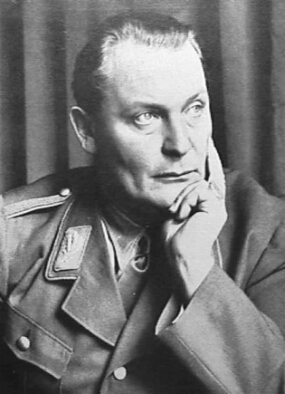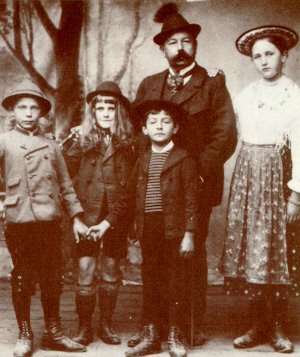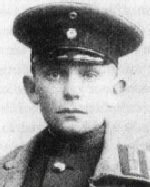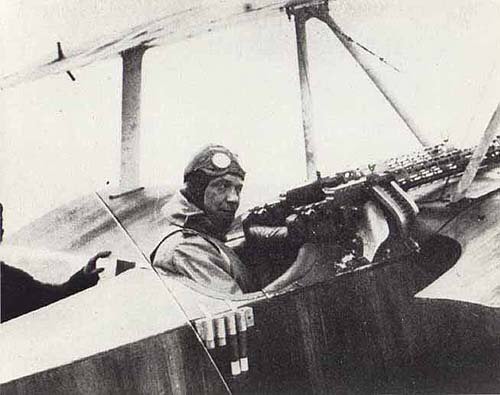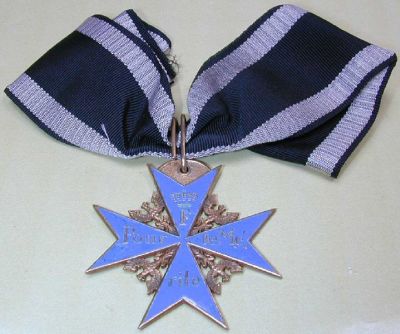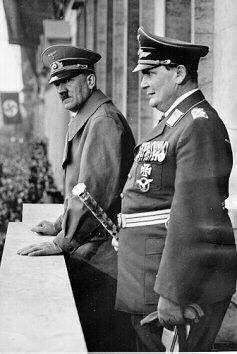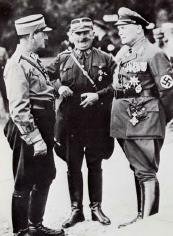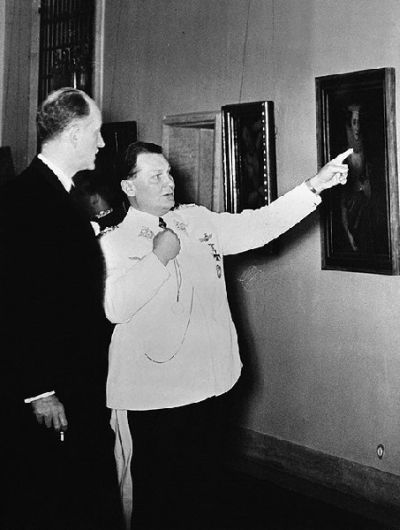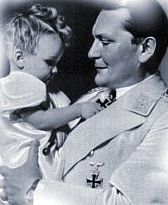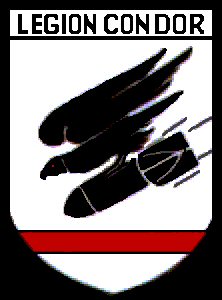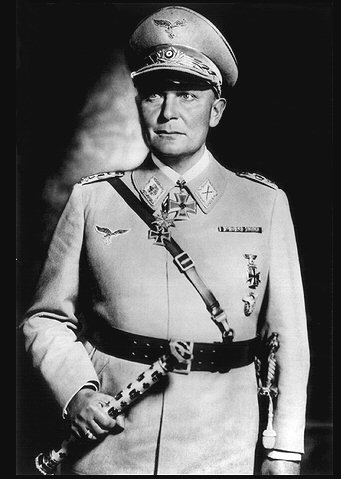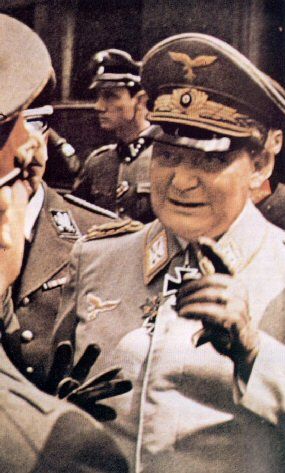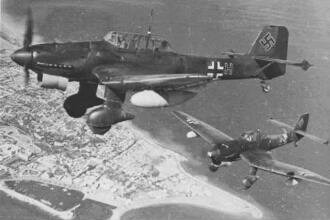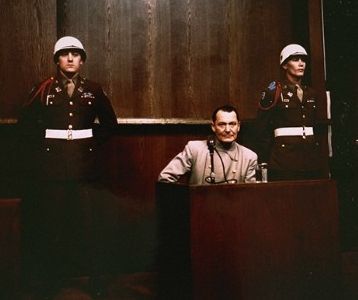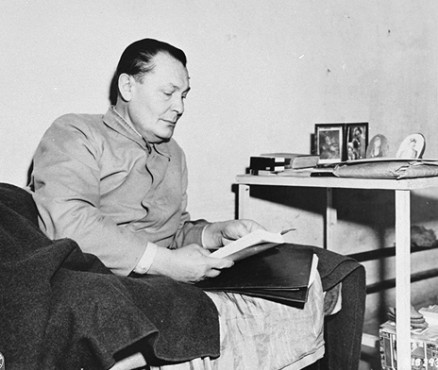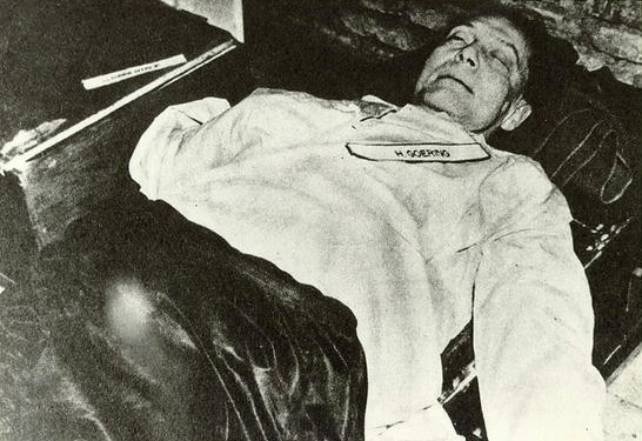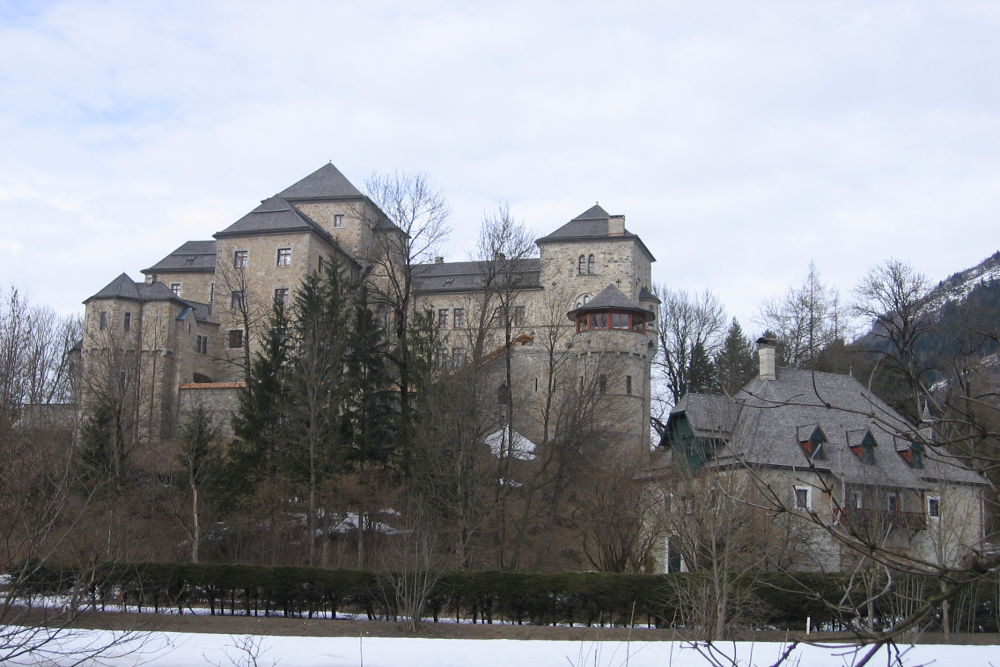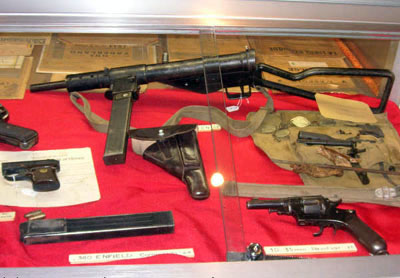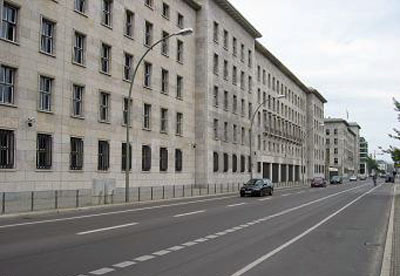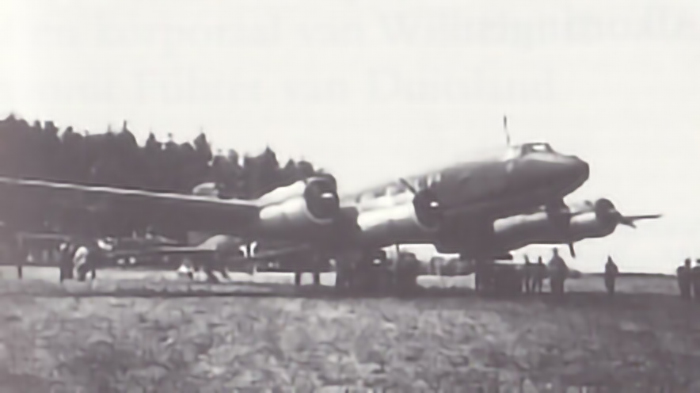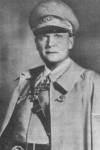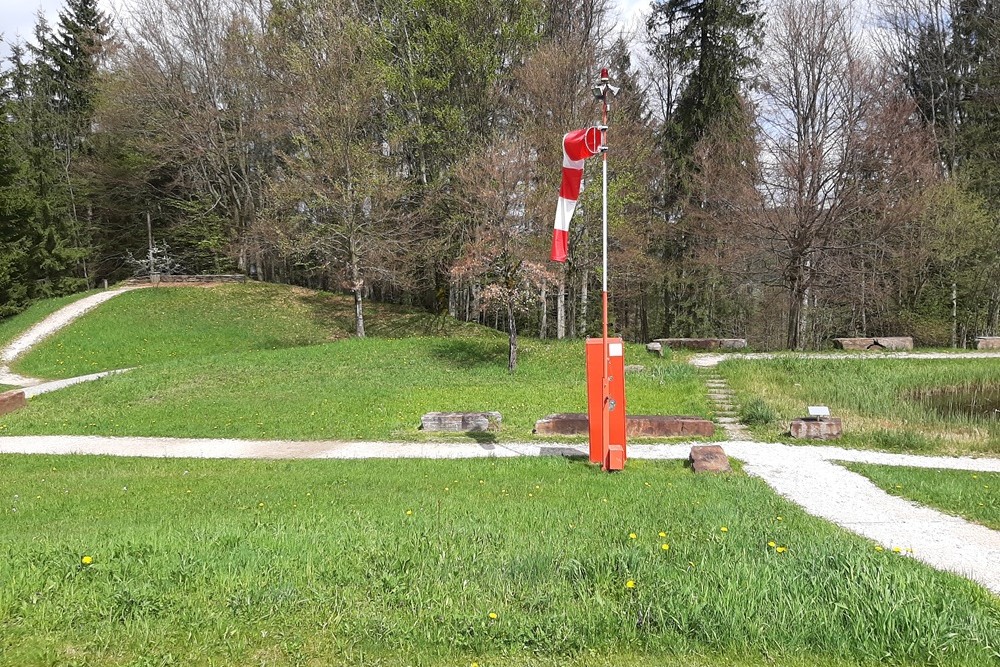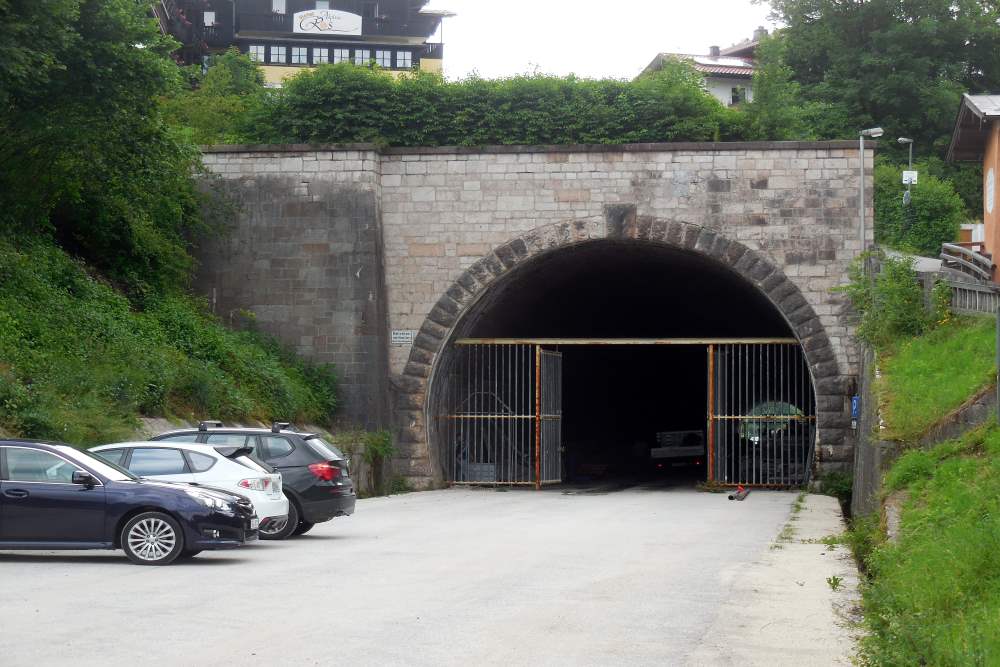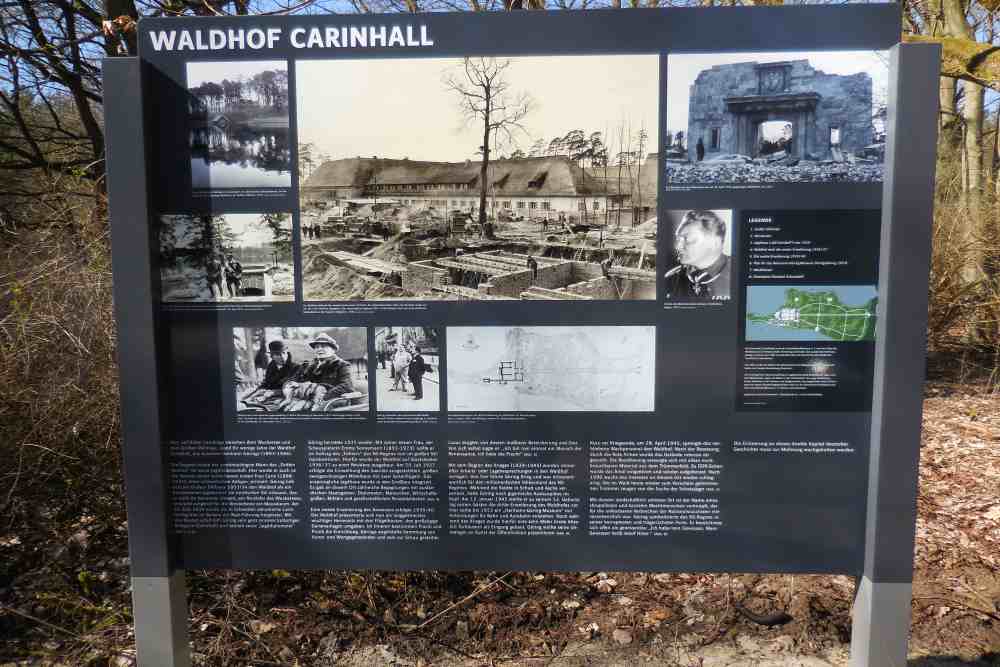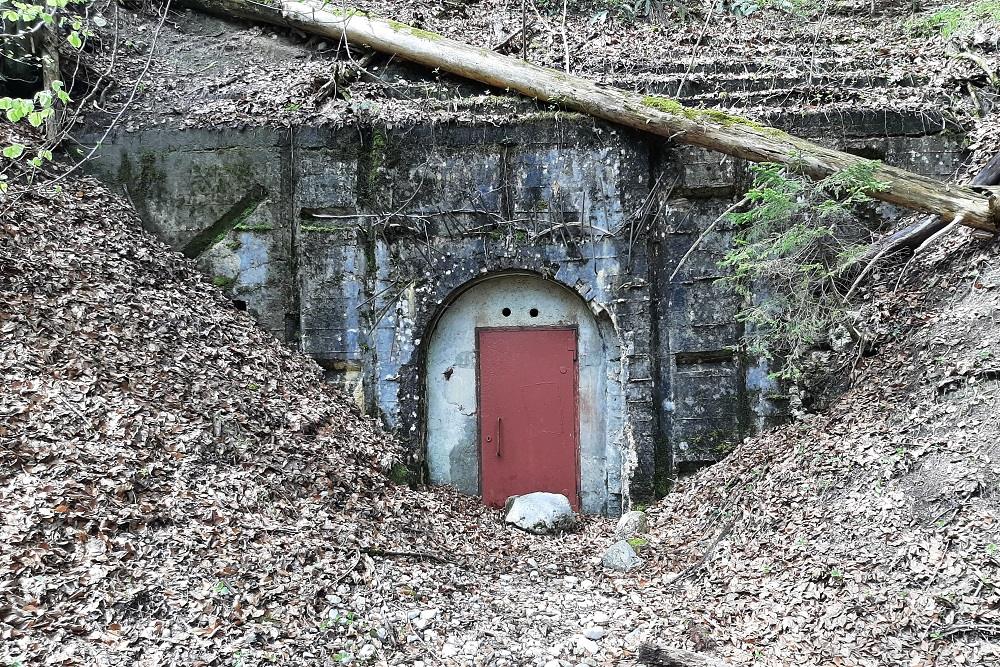His early years
Hermann Wilhelm Göring was born January 12th, 1893 at the Marienbadsanatorium in Rosenheim, a small town 40.3 miles south of Munich. His parents were Franziska Tiefbrunn and the older Heinrich Ernst Göring, the consul general in Haïti. Because his mother left Germany a few months after his birth, little Hermann lived with foster parents in Fürth for three years. When his father retired in 1896, Hermann returned to his parents. However, he could hardly forgive his parents for having left him behind. He could hardly bring himself to show respect, especially for his father who became an embittered alcohol addict after his retirement.
His big example was his godfather, Ritter Herman von Epenstein, a physician his parents had met in German Southwest-Africa, (later renamed Namibia). He was a wealthy bon vivant who dressed lavishly and who frequented aristocratic circles. Epenstein shared his wealth with the Göring family as he permitted them, having become impoverished, to use his Veldenstein castle near Nuremberg. In the meantime, Franziska had become the lover of the flamboyant Von Epenstein. Later, this castle was granted to Göring by Von Epenstein’s widow.
At the age of 12, Göring went to the military academy in Karlsruhe where he received excellent marks in, among other things, history, English and horseback riding. Later on he was admitted to the Hauptkadettenschule in Lichterfelde, a training institute for future German officers. Göring enjoyed military life to the full and especially the brilliant uniforms and the habits amongst the cadets, based on medieval rituals. At the age of 19, he was admitted to the Prinz Wilhelmregiment. At home, things went not so well: the romance between his mother and his godfather petered out and the Görings were ejected from Veldenstein Castle. After their forced relocation to Munich, sick Heinrich Göring died. Only after his death did Hermann recognize the great career his father had made. He came to regret the bad relationship with him.
Images
The First World War
At the outbreak of World War One, Hermann Göring was 21 years of age. Initially he served in the infantry but he quickly became disillusioned by the trench warfare. Following a severe rheumatic attack, he was even admitted to hospital where he met young pilot Bruno Loerzer. Göring was so impressed by the heroic stories about the air force that circulated that he asked to be transferred. Initially his request was denied but Göring was determined not to return to the less glorious trenches. Fortunately his influential godfather came to his rescue and he got Göring and Loerzer a job in the airforce which at that time did not amount to much.
Loerzer and Göring operated out of Stenay, flying numerous reconnaissance missions. The air force was not really deployed as an offensive weapon. This did not mean however that the work was any less dangerous. In order to obtain accurate photographs, flying low over the target area was essential, considerably increasing the danger of being shot down. Göring and Loerzer did not fear the risks though and after a number of very successful missions over Verdun, both pilots were awarded the Eisernes Kreuz I (Iron Cross 1st class) by Crownprince Wilhelm. From 1915 onwards, the role of the air force changed dramatically: aircraft were increasingly deployed as an offensive weapon. On the French side, there was one Roland Garros who managed to shoot down various German planes without the Germans having an answer to this new weapon. Things changed when Dutch Anthony Herman Gerard Fokker developed an improved version of this weapon. With well known names as Immelmann, Boelcke and Von Richthofen (the Red Baron) the German air force soon reigned supreme in the skies.
The ambitious Göring wanted to achieve the same glory and perform the same heroic acts so he started his flight training in Freiburg and on graduation, he was placed in 5 Luftstaffel. He was shot down on one of his first missions and spent months to revalidate. In this period he got engaged to Marianne Mauser. On November 3rd, 1916, Göring reported back for service, this time in 26 Luftstaffel, commanded by his good friend Loerzer. Soon, Göring had downed quite a number of enemy aircraft and later on he was given command of fightersquadron Jagdstaffel 27. In May 1918, he was awarded the highest Prussian decoration by the Emperor personally, the Pour le Mérite, for his remarkable achievements. Moreover, on July 7th, 1918 he was appointed commander of the legendary Jagdgeschwader (fightersquadron) Freiherr von Richthofen 1 as the ultimate successor of the famous ace, the Red Baron.
The capitulation of Germany in November 1918 put an end to a long and bloody war in which Hermann Göring made a name for himself for the first time. Göring himself was extremely upset when he heard the news of the capitualtion. Not only his beloved Empire came to an end, on which humiliating peace terms were imposed, it also meant the end of his glorious actions. Göring returned to Munich anonymously. Meanwhile, the engagement to Marianne Mauser had ended. In order to support the Göring family, he took on various jobs. He let himself be employed as a pilot and aerial acrobat in Sweden; military aviation in Germany being prohibited under the Treaty of Versailles. In this period he met Karin von Kantzow, daughter of a Swedish officer. Despite the fact that she was already married, she fell for his charms and married the German aviator on February 3rd, 1923.
During a demonstration against the Treaty of Versailles, which Göring had never been able to accept, he met Adolf Hitler and national socialism. Göring, dreaming of a great and strong man who could restore Germany to its former glory, was highly impressed by this meeting. To Hitler, the hero from the First World War was a welcome subject for propaganda but he also recognized that Göring, with his experience and intellectual assets could mean far more than just being a signboard. He appointed the former pilot to commander of the SA (Sicherheitsabteilung, security department) which he transformed into a strong private army in a very short time. Göring showed little interest for his work as SA commander though, neither did he show much interest in the ideology and the partyprogramme. Hitler was the one who tied him to Nazism; Hitler was the man he could look up to and for whom he would go through fire, just as he had done for his godfather in the past.
Definitielijst
- capitulation
- Agreement between fighting parties concerning the surrender of a country or an army.
- Eisernes Kreuz
- Iron Cross. German military decoration.
- First World War
- Took place from 1914 till 1918 and is also named The Great War. The conflict started because of increased nationalism, militarism and neo-colonialism in Europe. Two alliances battled one another during the 4-year war, which after a dynamic start, resulted into static trench warfare. The belligerents were the Triple Alliance (consisting of Great-Britain, France, and Russia; later enlarged by Italy and the USA, amongst others) on the one hand and the Central Powers (consisting of Germany, Austria-Hungary, Bulgaria and the Ottoman empire) on the other hand. The war was characterized by the huge number of casualties and the use of many new weapons (flamethrowers, aircraft, poison gas, tanks). The war ended in 1918 when Germany and its allies surrendered unconditionally.
- ideology
- A collection of principles and ideas of a certain system.
- infantry
- Foot soldiers of a given army.
- Iron Cross
- English translation of the German decoration Eisernes Kreuz.
- national socialism
- A political ideology drawn up by Hitler based on the superiority of the German race, the leader principle and fierce nationalism that was fed by the hard Peace of Versailles. National socialism was anti-democratic and racist. The doctrine was elaborated in Mein Kampf and organised in the NSDAP. From 1933 to 1945 National socialism was the basis of totalitarian Germany.
- Nazism
- Abbreviation of national socialism.
- offensive
- Attack on a smaller or larger scale.
- propaganda
- Often misleading information used to gain support among supporters or to gain support. Often used to accomplish ideas and political goals.
- socialism
- Political ideology aiming at slight or no class differences. Means of production are owned by the state. Evolved as a response to capitalism. Karl Marx tried to substantiate socialism scientific.
Images
The second man
And go through fire he did. On November 9th, 1923, Göring was in the lead during the Bierkellerputsch (beer cellar coup). The coup failed. Hitler was arrested and there were numerous deaths and wounded. Göring was hit in the groin by a bullet. Despite his grave injuries, he managed to escape from Germany. In Austria, he was admitted to a hospital in Innsbrück where he was administered morphine to ease the pain. It was the beginning of a long history of addiction and failed rehab. Göring grew obese and suffered from amnesia.
In 1927, political delinquents were granted amnesty. Göring returned to Germany where Hitler charged him again with an important task. He was to find an entry for the NSDAP into high society in order to fill the party’ s coffers. Göring succeeded with flying colours: he got Hitler an audience with President von Hindenburg and he collected funds from important industrial enterprises such as Krupp, BMW and Heinkel. The NSDAP progressed gradually and Göring’s star rose with it in German politics. In 1928 he was elected member of the Reichstag, along with Joseph Goebbels and on August 30th, 1932 he even became chairman of the Reichstag.
Yet not everything went along smoothly. His addiction to morfine remained, he injected himself daily with up to .001 ounces. Apart from that, his wife died October 17th, 1931 after a long illness. These setbacks did not restrain him from his work however. His function as chairman of the Reichstag made him the ideal person to prepare the seizure of power by the Nazis. He brought the army over to Hitler’s side and managed to persuade the old president Von Hindenburg to appoint Adolf Hilter to Reichskanzler. Göring was well rewarded for his efforts and deluged with functions: Reichsminister (Stateminister) initially without portfolio though, Reichskommissar für Luftfahrt (Statecommissioner for aviation) and Stellvertrender Innenminister (deputy Minister of the Interior) in Prussia. Hermann Göring had become the most powerful man, second to Hitler.
Hitler kept pushing important functions to his loyal helper. He had to get Germany a new air force. It goes without saying this had to be done in utmost secrecy, as it was still prohibited by the Treaty of Versailles. He also established the Forschungsamt des Reichsluftfarhtministeriums (research agency of the state department for aviation), using this to eavesdrop on rivals as well as supporters. From the information received he knew that SA chief Ernst Röhm became increasingly critical of Hitler and the party policy that should be followed. Based on the information he had collected, he managed, along with Heinrich Himmler, to persuade Hitler to do away with Röhm. In the Night of the Long Knives, the SA was cleansed; dozens of SA officers were arrested and executed.
Apart from being Minister of the Interior of Prussia, he was the chief of police. Göring expanded this into a strong force by calling on SA and SS militants. This renewed police force took harsh measures against political opponents with the KPD (Kommunistische Partei Deutschland, German Communist party) as its main target. In this same connection, the Gestapo (Geheime Staatspolizei, secret state police) was established. A first concentrationcamp was opened, Dachau, to imprison political delinquents. Göring had also the camps of Oranienburg and Papenburg established where thousands perished. In the spring of 1943, Göring transferred authority over the entire police, the concentrationcamps and the Gestapo to Heinrich Himmler.
With the death of Röhm, Göring’s prime rival as Hitler’s second man had been removed. In December 1934, in a secret decree, Hitler named Göring as his successor.
Definitielijst
- Krupp
- German family of steel and weapon’s manufacturers.
- Night of the Long Knives
- Night of 30 June to 1 July 1933 during which Hitler killed many of the demanding leaders of the SA, including Ernst Röhm.
- Reichskommissar
- Title of amongst others Arthur Seyss-Inquart, the highest representative of the German authority during the occupation of The Netherlands.
Images
The Sun King of the Third Reich
From August 1934 onwards, the Nazis reigned supreme over Germany. Göring enjoyed his glory and power to the full. Money was no longer a problem, it literally flowed in from all sides. Everyone was allowed - was obliged - to see how well he had done.
In Berlin he moved into a luxurious house and at Schorfheide, a little north from Berlin, he had himself built an enormous residence with all possible luxury like a steam bath and a cinema. The estate was named Carinhall after his deceased wife whom he had reburied there. Meanwhile he had married again to the actress Emmy Sonneman. The wedding ceremony was performed in the best Göring style: no fewer than 10 generals of the Luftwaffe and 30.000 soldiers were present while the most recent aircraft flew over Berlin in honour.
Meanwhile, Göring had become one of the most popular Nazi leaders. Photographs. postcards, statuettes and cooky jars with his picture circulated throughout the Reich. Characteristic of his popularity were the thousands of cards and telegrammes on occasion of the birth of his daughter Edda. The Görings received no less than 628.000 telegrammes. Moreover, every bookstore had picture postcards of her on sale. Her birthday, June 2nd, 1938, was almost celebrated as a national holiday.
Hermann Göring was always greedy for power and prestige. He became a real collector of jobs. As mentioned before, he was Reichsminister, Prussian Minister of the Interior, Reichsluftfahrtminister (as of May 1933) and chairman of the Reichstag. Following the Röhm Putsch, Hitler named him Reichswaldmeister and Reichsjagdmeister (chief of state forests and hunting), a task he took to his heart. He set out threatened species of animals and had all sorts of game imported like elk and swans. He tightened the regulations on hunting, he had whole forests planted and he laid out green areas around the large cities.
Finally, Göring was also a real collector of art. From 1940 onwards he had his art experts roam all over Europe to search for art treasures he could stockpile in his four residences, including Mauterndorf Castle and Veldenstein Castle. Whole trainloads of Rembrandts, Rubenses, Da Vincis and the greatest masterpieces of the impressionists of the 19th century with a total value of hundreds of milions of euros were collected by Göring. The walls of his grand houses were covered with old masters, three to four rows above each other. Even plans were drawn up for a Göring museum. His greed and ambition knew no boundaries, on whatever terrain. He wore six to eight rings on his fingers, often studded with pure diamonds. He had a whole range of uniforms and decorations designed by himself, intended for public appearances and his marshall’s baton was laid in with gold, silver and precious stones. He lived in Germany like a real king.
Definitielijst
- Luftwaffe
- German air force.
- Nazi
- Abbreviation of a national socialist.
- Putsch
- Coup, often involving the use of violence.
Images
Preparing for the Second World War
Göring’s most important function was probably that of Reichsluftfahrtminister. Even before the seizure of power, he was a strong advocate of a speedy rearmament of the German army. It was his duty to give Germany a strong air force again. To this end, he called on his former co-warriors from World War One: Bodenschatz, Loerzer, Udet ….. , they all were placed in key positions.
In order to enable the Luftwaffe to expand, he was appointed Reichsminister für Rohstoffe und Währung (Minister for raw materials and currencies). This department was to see to it that the air force received the required raw materials to be expanded into a formidable weapon. In October 1936 he even became Bevollmächtige für dem Vierjahrenplan (commissionber for the Four Year Plan). With this appointment, Hitler charged him with the task to prepare the German army and the German economy for war within four years. In an address to his party comrades, he said about this: "We have no butter, fellow partymembers but I ask you: what do you prefer, butter or guns? Shall we import beacon or iron ore? I say to you: being on the alert gives us power. Butter makes us fat". In this period he effectively deployed the fledgling Luftwaffe for the first time. The so called Condor legion supported Franco in his battles during the Spanish civil war and it became notorious for the bombing of the Baskian town of Guernica which was largely destroyed.
On February 8th, 1938, Göring was given yet another function. He was appointed Generalfeldmarschall der Wehrmacht. This was a real disillusionment for the ambitious Göring: he had stashed all his hopes on becoming its supreme commander but Hitler took this function for himself. As it was, Göring did play a not unimportant role in the expansion of the German Reich. The Rhineland had been occupied in the meantime but Göring was more important in the Anschluss (link up) of Austria. By a long series of telephone calls he made demands on Chancellor Kurt von Schuschnigg to resign and name Arthur Seyss-Inquart as his successor. Federal president Miklas however refused to appoint Seyss-Inquart. When it became clear that Italy and Great-Britain would not react, Göring gave orders for the invasion. It turned out to be a quick victory and the Anschluss was a success, almost without a shot being fired. Hitler did not appreciate it however that Göring had taken charge in this way. For the first time, tensions arose between the two Nazi leaders.
The next target after the Anschluss was the Sudetenland, an area in Czechoslovakia in which the majority of the inhabitants had been ethnic Germans for years. Göring knew that England and France would do anything to avoid war with Germany and he wished to solve the Sudeten problem in the same diplomatic fashion as that of Austria. He had however not counted on Hitler. While Göring was taking his umpteenth health cure in San Remo, Italy, the starting signal for the offensive was given on March 11th, 1939. General Wilhelm Keitel was orderd to put an ultimatum to Czechoslovakia: Prague had to allow the occupation of the Sudetenland just like that. Göring was kept out of everything. The powerplay between the Czech president Emil Hacha and Hitler continued for a while until March 14th when Hacha was forced to accept an ultimatum. In this, Göring, meanwhile fully recoverd, played a leading role. Probably to please Hitler, Göring and Joachim von Ribbentrop were competing in describing what surely would happen if Hacha would not succumb to the ultimatum and refuse to sign it: "Prague will be in ruins within two hours" and "Hundreds of bombers waiting for the order to start which will be given at 06:00 in the morning if the ultimatum is not signed". Giving in to this psychological terror, Hacha signed and a few hours later, on March 15th , 1939, the Nazis advanced into Czechoslovakia unopposed and annexed the Sudetenland.
Despite the success, Göring was not satisfied at all. He felt he had had to give in again to Hitler’s will. Göring simply did not dare to go against his great hero. As harsh and irascible he could be, so meek and servile he was in the presence of the Führer. Göring was much more Hitler’s first henchman than his first successor. He had to accept more and more that Hitler and Von Ribbentrop made decisions without him. In this way the "steel pact" between Italy and Germany was sealed without Göring being informed.
Peace in Europe seemed further away than ever, particularly after the non-agression treaty between Germany and the Soviet Union had been signed. Göring knew, thanks to his reliable contacts in England and Sweden, that England would no longer maintain her policy of appeasement. Göring tried to persuade Hitler to abandon his plans. As it was, he knew very well that war would mean the end of the luxurious life he was leading up till then undisturbed. His efforts were in vain however.
Definitielijst
- Anschluss
- The joining of Austria to Germany. The annexation of Austria by Nazi Germany on 12 March 1938. Austria became part of Greater Germany.
- Condor legion
- Name of German air force (mainly) units that fought alongside General Franco during the Spanish civil war from 1936-1939.
- Four Year Plan
- A German economic plan focussing at all sectors of the economy whereby established production goals had to be achieved in four years time.
- Führer
- German word for leader. During his reign of power Adolf Hitler was Führer of Nazi Germany.
- invasion
- Armed incursion.
- Luftwaffe
- German air force.
- Nazi
- Abbreviation of a national socialist.
- offensive
- Attack on a smaller or larger scale.
- Rhineland
- German-speaking demilitarized area on the right bank of the Rhine which was occupied by Adolf Hitler in 1936 after World War 1.
- Soviet Union
- Soviet Russia, alternative name for the USSR.
- Spanish civil war
- Fierce and cruel civil armed conflict in Spain from 1936 to 1939 between left (from anarchic to liberal) and right (church, nobility and army). In 1936 the fascist-oriented general Franco started military uprisings. With the help of Hitler and Mussolini he beat the republicans who vainly were supported by the International Brigade.
- Wehrmacht
- German armed military forces, divided in ground forces, air force and navy.
Images
WW 2, Göring's dwindling power
September 1st, 1939 saw the start of World War Two with the invasion of Poland. Great-Britain and France declared war on Germany. Although Göring profoundly disagreed with Hitler, he was quickly pacified. In a speech to the Reichstag, Hitler announced that if anything should happen to him, Hermann Göring would become his successor. This finally sealed Göring’s definitive and total dependency on Hitler. If he did not wish to be disinherited, he had to do anything Hitler ordered.
Göring did not want the war but once it had started, he did everything in his power to win it. If he could not curb Hitler, he would serve him as a loyal soldier. His Luftwaffe however was not prepared for a prolonged war. The air force, for instance, possessed no heavy long-range bombers. This would prove a serious shortcoming for the future progress of the war. Göring also had an entirely wrong idea of the strength of his Luftwaffe.
Moreover, aircraft production was poorly organized. Generalflugzeugmeister Ernst Udet might well have been an excellent fighterpilot in World War One, managing an armament industry was something else again. Under his direction, some 375 aircraft left the factories each month; under Albert Speer this increased to 2.500 in the top months. The lack of new and better aircraft caused the Luftwaffe to lose ever more respect and importance.
The Blitzkrieg against Poland and in western Europe progressed succesfully although there were already some clear signs that the Luftwaffe was not as strong as was hoped. Göring boasted that his Luftwaffe could defeat the Allies, trapped in Dunkirk, all by itself. There however, for the first time, they lost superiority over a battlefield. These first disturbing messages drowned in the euforia of the victories however. Göring was given yet another title and a decoration: he was awarded the Grosskreuz des Eisernen Kreuzes (Grand Cross of the Iron Cross) by Hitler who appointed him to Reichsmarschall.
Hitler counted on Great-Britain to sign a peace treaty but the new British Prime Minister, Winston Churchill absolutely refused to make peace with Hitler. On August 13th, 1940, Adlertag (Eagle’s day), one of the most decisive air battles of the war was launched: the Battle of Britain. The Royal Air Force and the well organized British air defences inflicted enormous losses on the Luftwaffe which had, up to that time, engaged only weak opponents. More than 1.700 German aircraft were lost in the course of Operation Seelöwe (Sealion, the invasion of England), against 915 British aircraft. Göring’s Luftwaffe had failed and Hitler lost all faith in him.
Despite the problems of the Luftwaffe over Great-Britain, Hitler was determined to fullfill his old dream: to do away with Bolsjevism. Göring warned Hitler of the dangers of a war on two fronts but the latter no longer took notice of him. On June 21st, 1941, Operation Barbarossa was launched. Initially, all went well but the advance bogged down after a few months. Despite the many successes, also of the Luftwaffe, the Red Army managed to re-arm itself quickly behind the Ural mountains, something in which the Luftwaffe had failed, as mentioned earlier. The failing leadership became ever clearer. Hitler intervened by appointing Albert Speer to Reichsminister für Rüstung und Munitionen (minister for arms and ammunition). In that capacity he became responsible for large parts of the war economy and for the Four Year Plan as well. Speer managed to increase aircraft production dramatically but the Luftwaffe was no longer able to achieve great victories.
The Allied bombing attacks on German cities increased. The Luftwaffe was powerless to prevent them. Cologne, Hamburg, Darmstadt, Nurnberg, all suffered heavy, devastating bombardments. Göring could not put up anything against it. He retired more and more into his own dreamworld, governed by morphine, art treasures and fancy uniforms. Little remained of the active, energetic and ambitious Göring of the 30’s. Hitler ignored his supreme commander but did not abandon him nevertheless. Göring still was one of the most popular Nazis after all.
During the battle for Stalingrad, Göring seemed to get a chance to regain his esteem. An enormous airlift operation was to enable 6th Army under General Von Paulus to stand fast and turn the battle at the eastern front around. The Luftwaffe was to deliver 500 tons of food, muniton and fuel every day. Due to a shortage of available aircraft and airfields, the often bad weather and the enormous distances, Von Paulus received less than 200 ton of supplies. Stalingrad proved once more that the Luftwaffe was not equal to the tasks alloted by Hitler and Göring. Göring’s esteem melted like a snowflake in summer.
On April 20th, 1945, Göring went to the Reichskanzlei for the last time on occasion of Hitler’s birthday. Then he went to Carinhall, blew up the estate himself and departed to his quarters at the Obersalzberg. Despite - or maybe thanks to - the hopeless situation the Third Reich had gotten into, Göring nursed hopes of finally emerging from Hitler’s shadow and succeeding him. On April 23rd, 1945, he sent a telegramme to Hitler’s bunker: "Mein Führer, do you consent that I (…..) in accordance with your decree of 29-06-1941, take over, as your deputy, total control over the Reich with full freedom of action in national and foreign matters?". Hitler was furious about this "treason" by Göring. He immediately issued a warrant for his arrest and expelled him from the party.
And yet, Göring still thought he was the most important man within the Third Reich. Consequently he turned to Eisenhower in order to reach an agreement and avoid further bloodshed in a man to man talk. A day later, on May 7th, 1945, he was taken prisoner by the Americans in the vicinity of the Austrian town of Radstadt near Salzburg.
Definitielijst
- Blitzkrieg
- The meaning of this word is “Lightning War”. Short and fast campaign. As opposed to a trench war the Blitzkrieg is very quick and agile. Air force and ground forces work closely together. First used against the Germans (September 1939 in Poland.
- Four Year Plan
- A German economic plan focussing at all sectors of the economy whereby established production goals had to be achieved in four years time.
- Führer
- German word for leader. During his reign of power Adolf Hitler was Führer of Nazi Germany.
- invasion
- Armed incursion.
- Iron Cross
- English translation of the German decoration Eisernes Kreuz.
- Luftwaffe
- German air force.
- Red Army
- Army of the Soviet Union.
Images
The Nuremberg trial
At the Nuremberg trial, the public prosecutors considered Göring the prime defendant after the suicides of Hitler, Goebbels and Himmler. No other suspect had been involved in so many spheres of the decision making and in war crimes and this made him the key figure during the trial. The 17 months of imprisonment had done him well, he had shed his addiction to drugs and he had lost 88 lbs. in weight.
Initially he accepted all responsability. He hoped to stand trial as the great military man. As the trial progressed, it became increasingly clear that Göring had also been involved in the Endlösung (final solution). He stated he had not meant it that way, that he had thought the Jews had all emigrated. He claimed he knew nothing at all about extermination camps. The evidence against him was too overwhelming however, so near the end of the trial, nothing remained of his credibility.
In September 1935, Göring, being chairman of the Reichstag, had issued the racial laws and simultaneously proclaimed the swastika as "the Holy symbol of the struggle against the Jews as exterminators of races". Verbally, he let himself be known as a fanatic Jew hater but his anti-Semitism was focused less on extermination, as opposed to, for example, Josef Goebbels. When Ernst Udet, who had Jewish ancestors, was appointed Reichsflugzeugmeister, he said: "Wer Jude ist, bestimme ich."(I decide who is Jewish). Jews who could be useful to him, such as art salesmen, could obtain a safe conduct. Yet, behind this seemingly tolerant attitude, a fervent Jew hater was hidden who was one of the driving forces behind the persecution of the Jews.
Hitler charged him with the: "co-ordination of the Jewish question." Jews had to be eliminated from industry by all possble means and a Judenauswanderingszentrale (an emigration agency for Jews) was established. With the invasion of the Soviet Union, his attitude towards Jews and Bolsjevists hardened further. He ordered all Russians prisoners to be executed without trial. As head of the Wirtschaftsstab Ost (economic agency for the east) he had the eastern territories ransacked and plundered ruthlessly.
Meanwhile, the major extermination centers were established in Poland. Reinhard Heydrich was in charge. On Hitler’s order, Göring authorized him to: "make all necessary administrative, financial and material preparations for the final solution of the Jewish question within the area of German influence in Europe. Furthermore I order you to send me as soon as possible a complete plan of action, stating the size of the organization and the actions necessary to achieve the desired final solution". Heydrich - and Eichmann - had received Göring’s order loud and clear and they set up an important meeting. The notorious Wannsee conference took place on January 20th, 1942, sole point on the agenda being the plan for a genocide on a European scale.
All these and many more elements and documents proved that Hermann Göring had been all too well aware of the persecution of the Jews and their extermination. Despite his denial of all charges he was found guilty on all counts and sentenced to death by hanging. His plea for a pardon was rejected. On October 15th, 1945, a few hours before his sentence was to be executed, he committed suicide by swallowing a cyanidecapsule he had received from one of his guards. His ashes were dispersed over a tributary of the river Isar near Dachau.
Also see: Final statement Göring and Verdict Göring
Definitielijst
- Endlösung
- Euphemistic term for the final solution the Nazis had in store for the “Jewish problem”. Eventually the Endlösung would get the form of annihilating the entire Jewish people in extermination camps.
- invasion
- Armed incursion.
- Jews
- Middle Eastern people with own religion that lived in Palestine. They distinguished themselves by their strong monotheism and the strict observance of the Law and tradition. During World War 2 the Jewish people were ruthlessly persecuted and annihilated by the German Nazis. . An estimated 6,000,000 Jews were exterminated.
- persecution of the Jews
- "Judenverfolgung", action imposed by the Nazis to make life hard for the Jews, to actively persecute them and even annihilate them.
- Soviet Union
- Soviet Russia, alternative name for the USSR.
- swastika
- Equilateral cross, symbol of Nazi-Germany.
- Wannsee conference
- Conference at the Wannsee on 20 January 1942. The Nazi’s made final agreements about the extermination of Jews in Europe, the Final Solution (Ëndlösung).
- war crimes
- Crimes committed in wartime. Often concerning crimes committed by soldiers against civilians.
Images
Information
- Article by:
- Gerd Van der Auwera
- Translated by:
- Arnold Palthe
- Published on:
- 19-01-2025
- Feedback?
- Send it!
Related sights
Sources
- CAPELLE, H. VAN & BOVENKAMP, P. VAN DE, Hitlers handlangers, Verba, Soest, 2004.
- KNOPP, G., Hitlers beulen, de Prom, Baarn, 2001.
- LEBERT, N. EN S., Mijn vader was een nazi, Manteau, Antwerpen, 2001.
- MOSLEY, L., De Rijksmaarschalk, een levensbeschrijving van Hermann Göring, Mantrau, Brussel / Den Haag, 1974.
